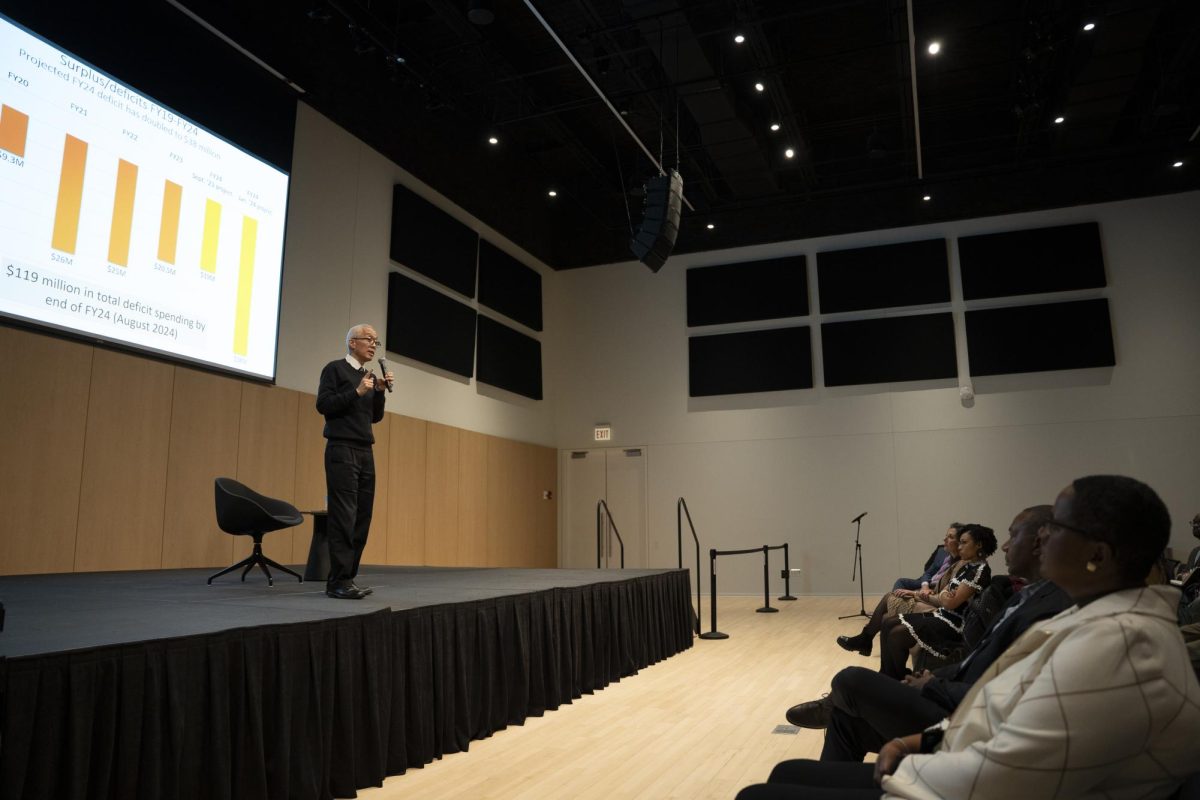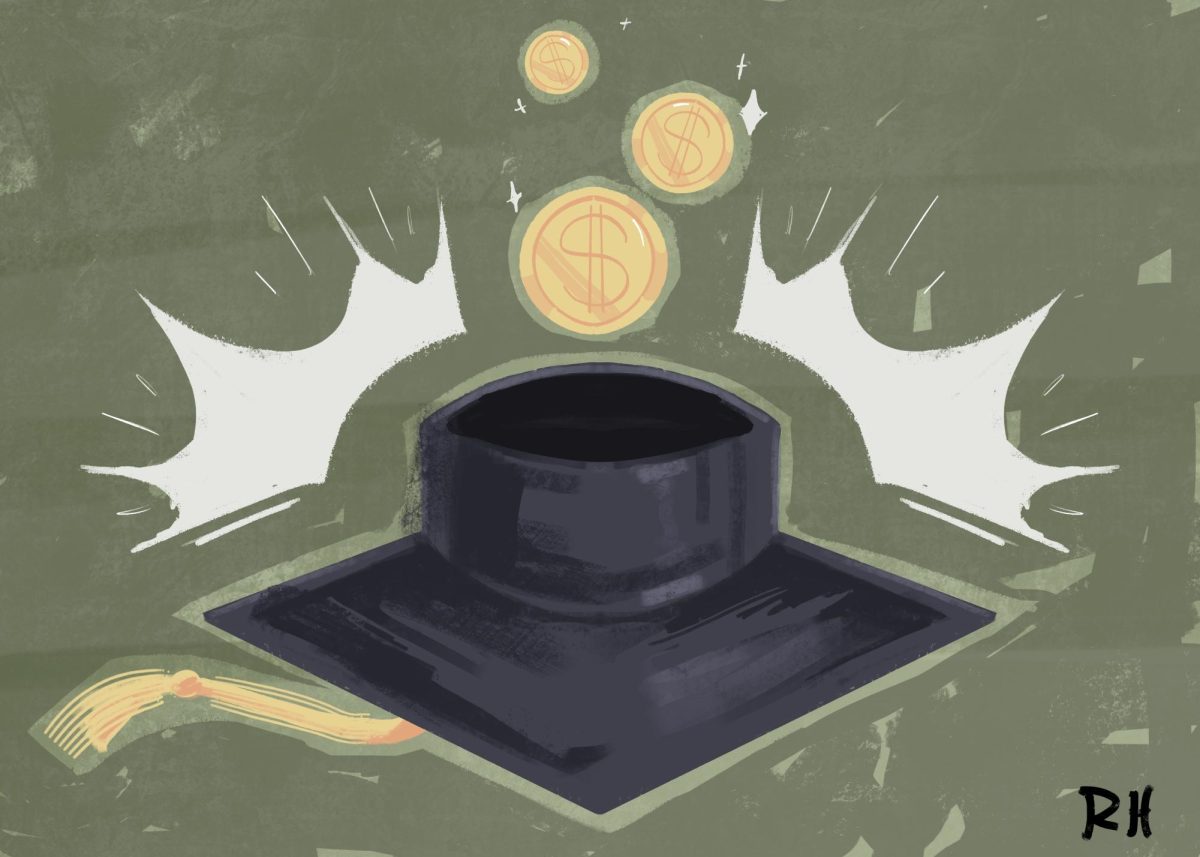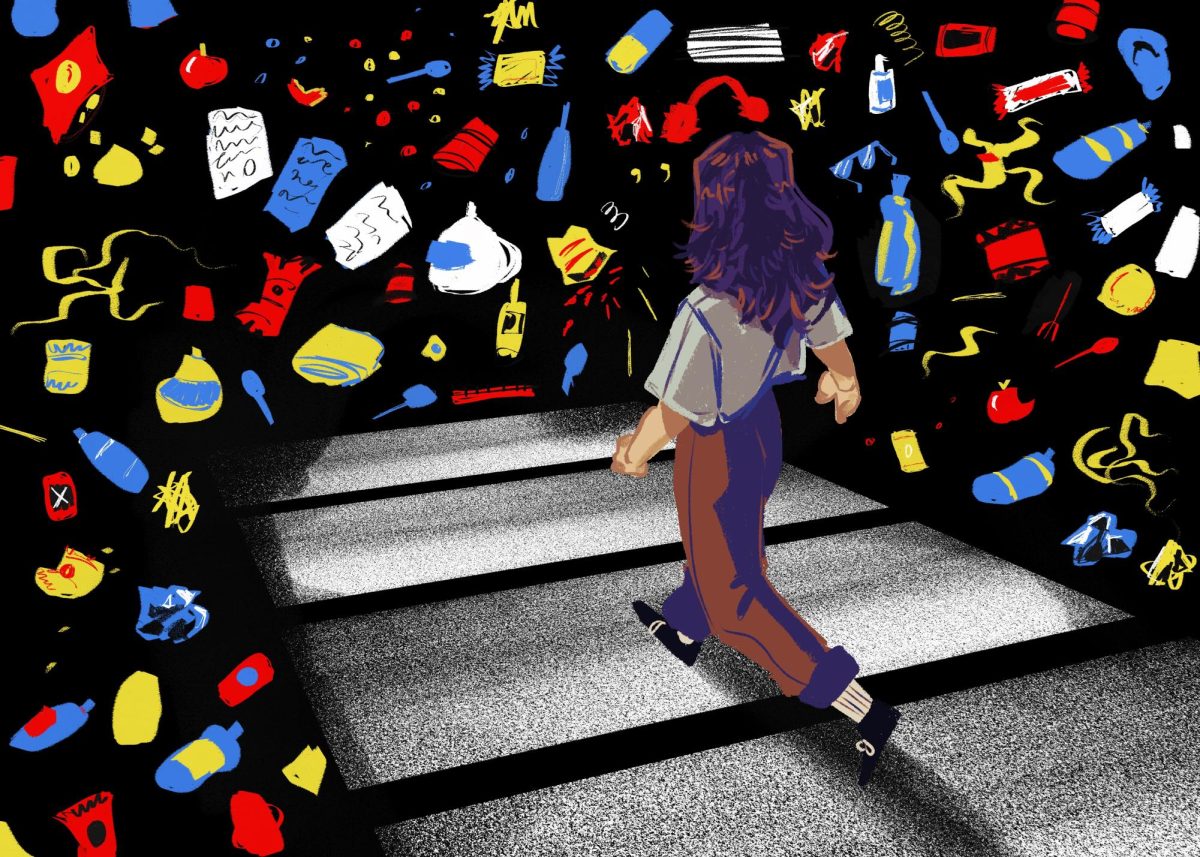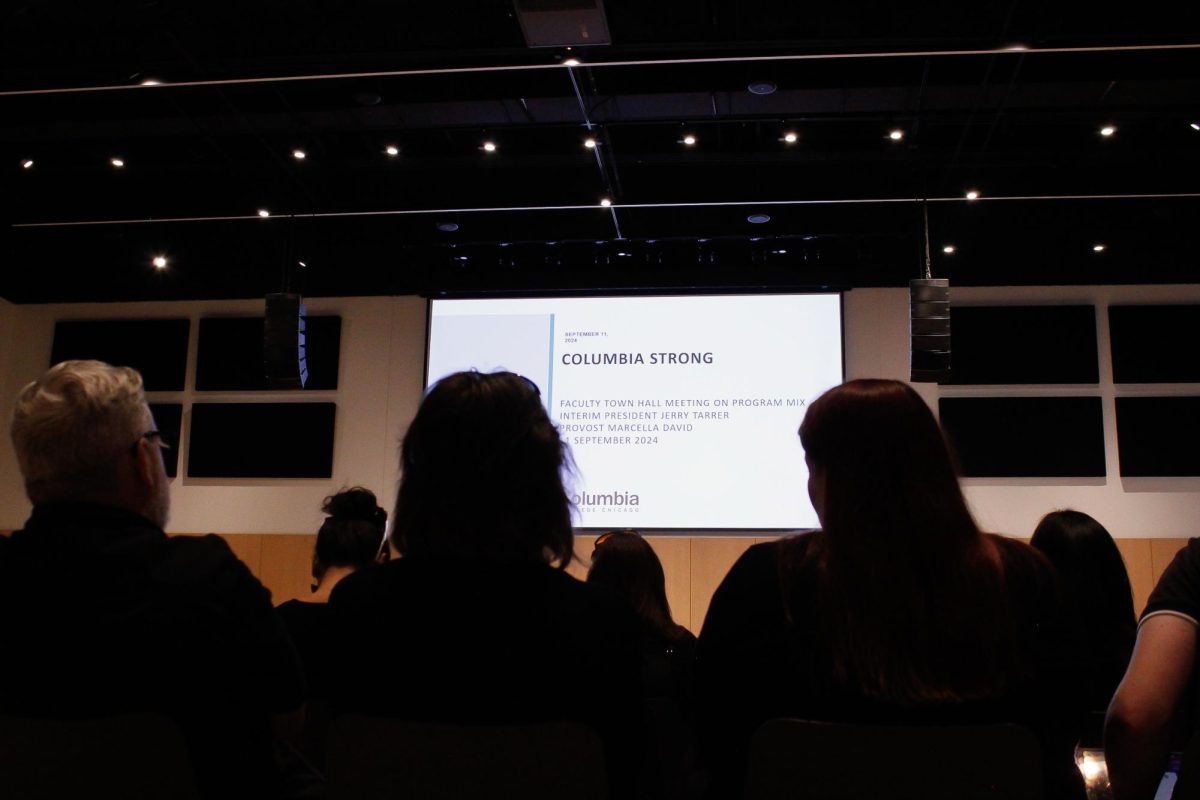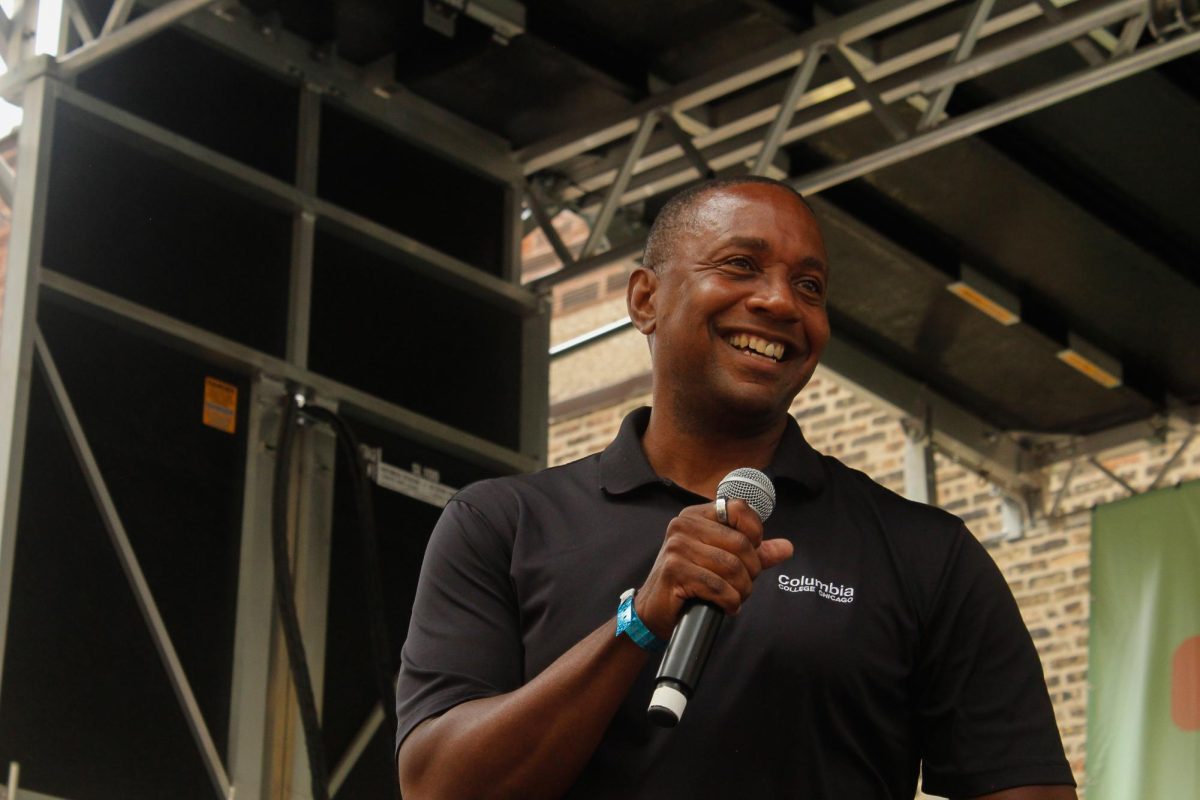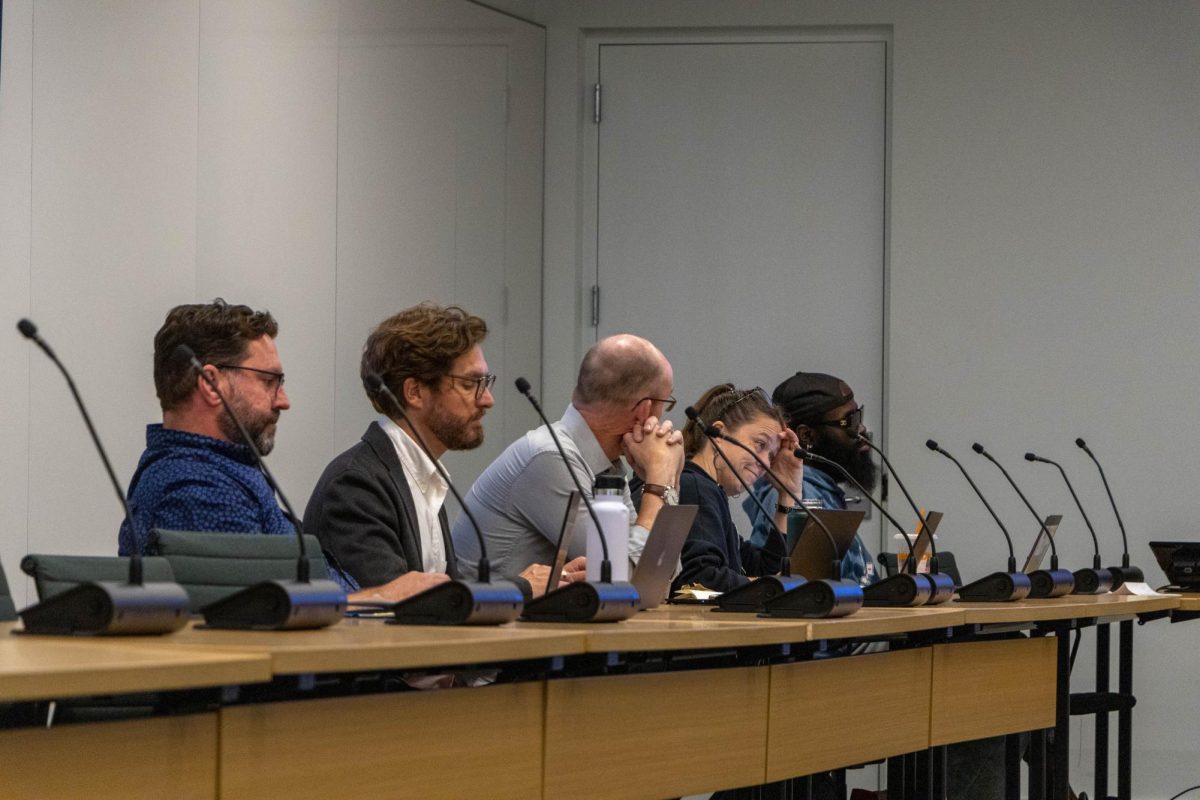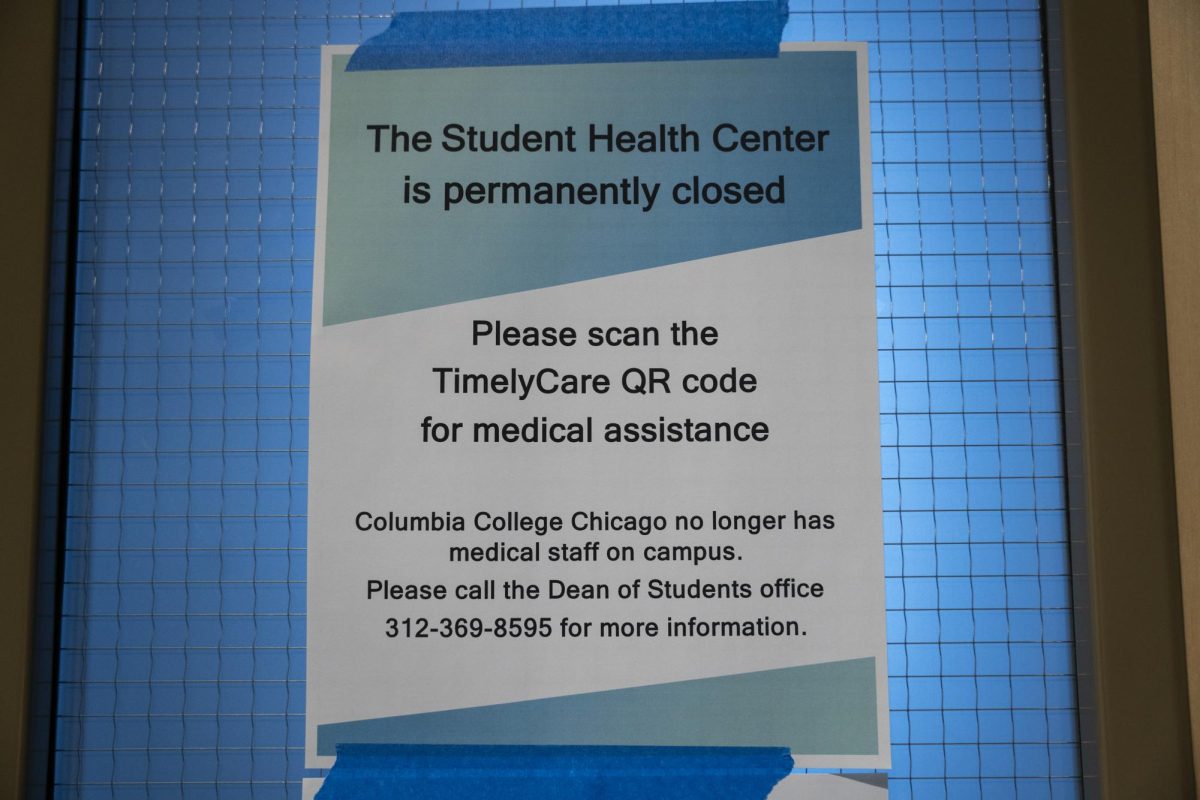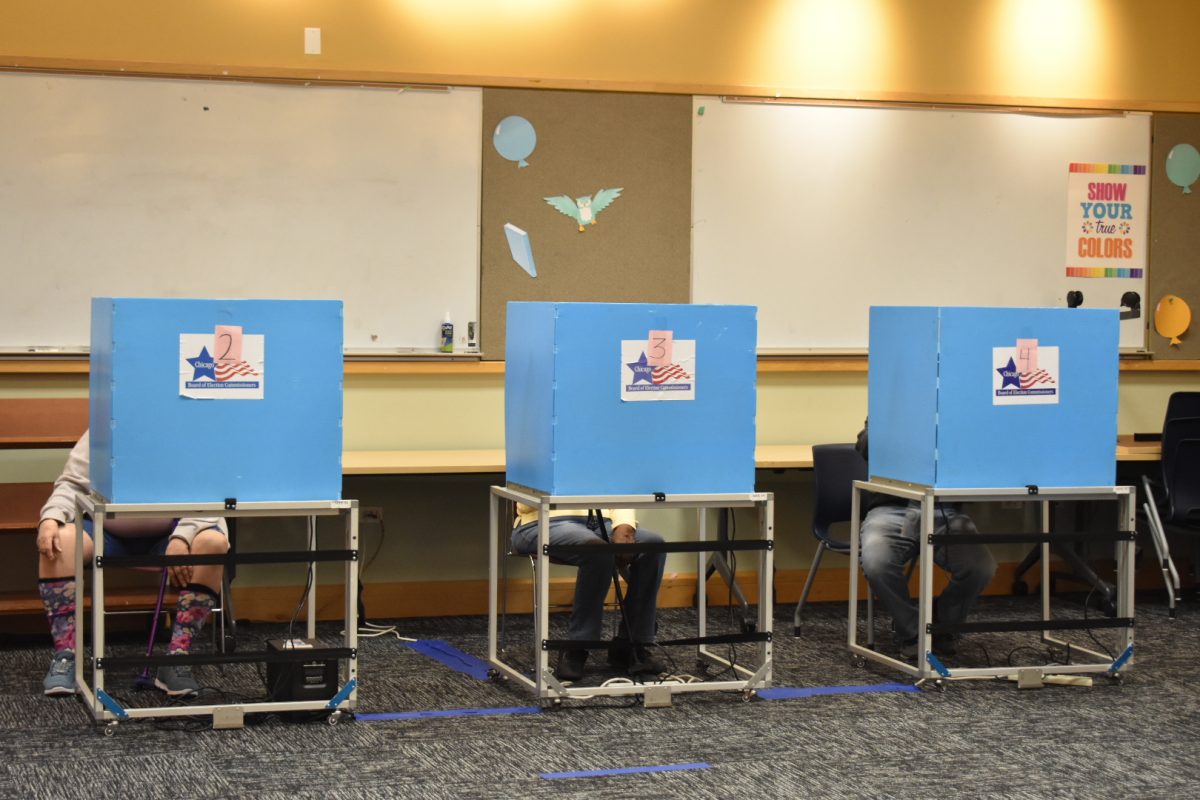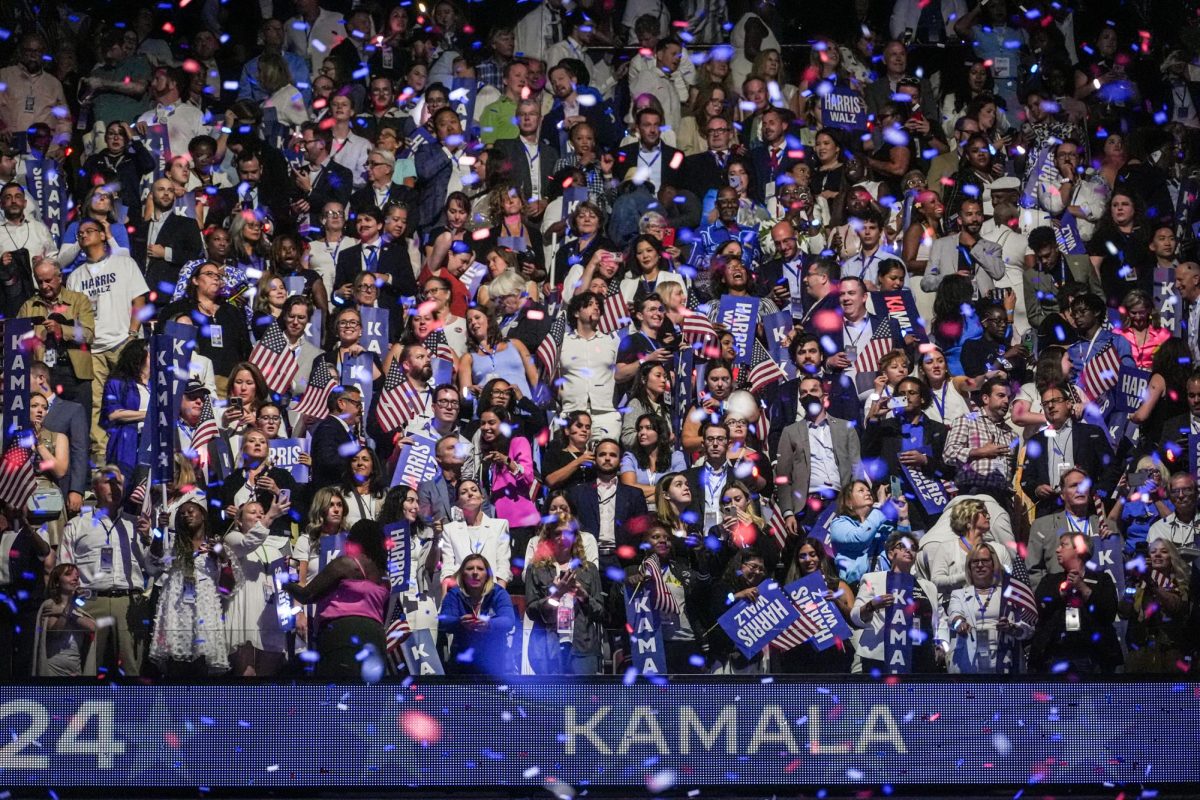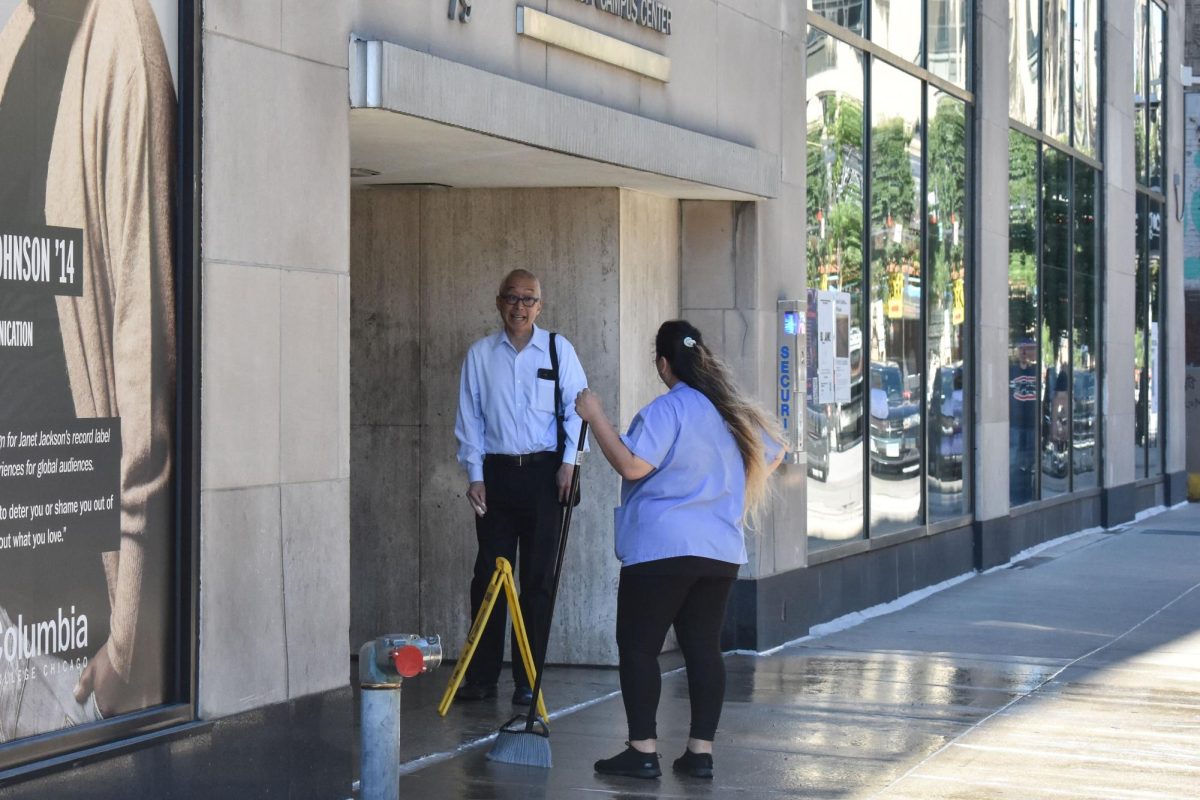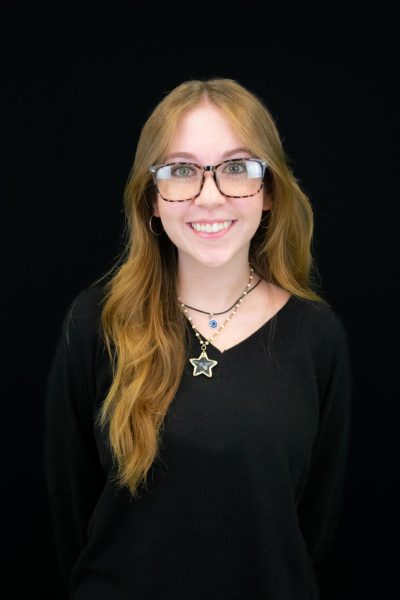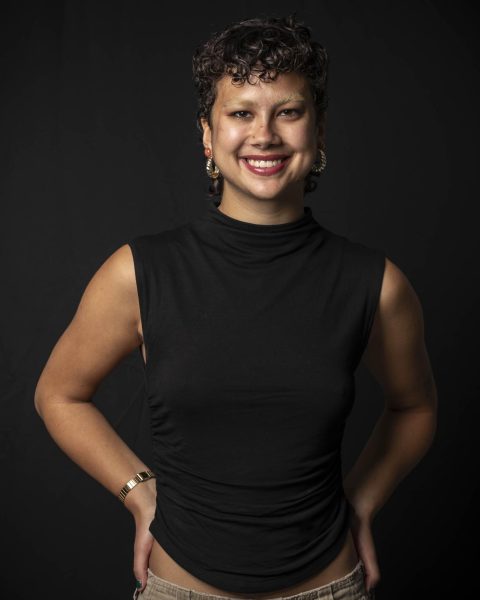For the second day in a row, President and CEO Kwang-Wu Kim sought to explain the college’s financial crisis to faculty and staff, laying out why the deficit grew to $38 million and what steps Columbia will need to take to address it.
More than 250 people joined a “State of the College” address held on Zoom on Wednesday, Feb. 7. The presentation from Kim mostly mirrored one the day before in-person, at the Student Center.
He compared the college’s current fiscal health to a patient with dangerously high blood pressure.
“So the first stage is to lower the blood pressure,” he said. “Not to perfect levels but just to get it low enough that we can start doing something else, and that’s at this first stage that is coming up.”
Kim said he has asked his vice presidents to identify possible cuts in their units — up to a third of their budgets — and would also convene the Presidential Budget Advisory Board to help identify savings. That group includes faculty and a student representative, he added.
In total, the college needs to identify $19 million in savings, or the equivalent of 125 positions, Kim said.
Some of the cuts would be in administrative or managerial positions but also cuts from unfilled vacancies and other expenses, said Lambrini Lukidis, associate vice president of Strategic Communications and External Relations.
On Tuesday, Kim said the college would institute a campus-wide hiring freeze, including halting the hiring of a dean for the School of Media Arts, a search that had been in process since last summer.
He also said on Wednesday that the academic structure of the college could change, imagining a “different way of housing what we teach.” He added that “all ideas we generate have to be linked to this process of budgetary reduction.”
The hiring freeze will not impact student workers positions, Lukidis told the Chronicle in an email.
Asked in the Zoom forum if the college could possibly sell real estate to raise money, Kim said they were working with brokers but that the commercial real estate market in downtown Chicago is not healthy at the moment, with buildings selling for half of their value.
Craig Sigele, president of the United Staff of Columbia College, told the Chronicle that he is particularly worried about the impact of the hiring freeze on the Advising Center. Five advisors left the school last year, the Chronicle previously reported, and the Center is currently short four positions, Sigele said.
“This shortage of professional advisers will significantly impact fall registration and overall retention,” he said. “I trust the college will not handicap itself any more than it has and still make critical hires that directly affect students and student retention.”
Going into the fall semester, before the seven-week historic strike by the Columbia Faculty Union that represents part-time instructors, the college had solid plans to reduce a deficit and was moving in the right direction, Kim said.
But the strike increased the already roughly $18.5 to $19 million deficit, Kim said, citing a slightly lower figure than the previously reported $20 million deficit. The strike cost the college about $13 million, he said, repeating a figure from the day before.
The college’s Board of Trustees has directed the college to reduce the structural deficit. A structural deficit is the gap between how much it costs to operate and how much money the college brings in. Kim said the gap was caused by “overspending” on scholarship dollars and operational costs, and lower retention and enrollment numbers that didn’t bring in as much tuition revenue as expected.
He estimated that for every dollar the college spends, it only brings in 80 cents in revenue.
“I can’t be more transparent than this,” Kim said. “I just wanted to make sure that I put it all out in front.”
Part-time Theatre Department instructor Laura Sturm asked Kim why the college just hired new full-time faculty ahead of the hiring freeze. She said such a move damaged the reputation of the institution.
The college hired 14 assistant or associate professors of instruction and one practitioner in residence in the Theatre Department just ahead of the Spring 2024 semester. Six of them were former adjuncts.
Senior Vice President and Provost Marcella David said the hiring of the new faculty started well before the start of the semester.
“The request for making hires starts very early on,” David said. “Our ability to make some of the hires was delayed because of the description due to the strike. It is always based on our chairs and our needs identifying needs and related to how we can best deliver curriculum.”
Columbia Faculty Union President Diana Vallera did not respond to an email seeking comment by the time of publication.
Sigele said the new financial information about the deficit is “alarming.”
“I believe there needs to be accountability for this unprecedented situation,” he told the Chronicle. “I fear this crisis will once again be born on the backs of the staff.”


